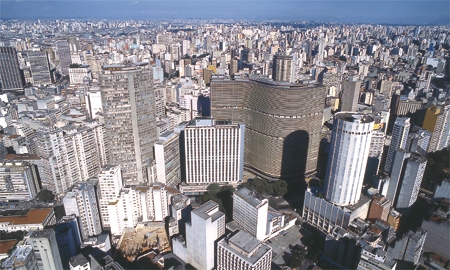The explorer’s words are as accurate today as they were five centuries ago: Brazil is the largest producer and exporter in the world of sugar, coffee and orange juice, and the second largest producer of soybean, beef and tobacco. But agriculture is by no means the only sector of economic activity in which Brazil has been gaining ground over the past years.
The largest country in Latin America is also the second largest iron ore producer in the world, with vast reserves of other minerals, whilst the state-owned oil company Petrobras continues to announce new discoveries of offshore oil that are expected to place Brazil amongst the world’s biggest producers within the next five years. But Brazil has not always been a large oil producer, and the first oil shock in the 1970s led it to invest heavily in alternative energy sources, especially in sugarcane-based biofuels.
This longsighted approach has resulted in the country being considered today a pioneering reference in the biofuels industry. The aerospace conglomerate Embraer, the third-largest in the world, is another example of Brazil’s growing economic clout and the companies behind it.
When asked to identify the main factors behind Brazil’s buoyant economic climate, business leaders agree that the country’s success at reigning in the inflation that wreaked havoc on the economy until the mid 90s played a vital role. Until the series of macro-economic measures known as the Plano Real were implemented in 1994, hyperinflation that reached over 40% a month made it impossible for consumers to save money and for companies to implement long-term investment plans.
During Fernando Henrique Cardoso’s two terms as president (1995-2003), Brazil finally put the specter of inflation behind it and began the spurt of economic growth that continues today.
Luiz Inacio Lula da Silva, a former industrial worker and trade union leader, was elected president in 2003 and managed to maintain judicious economic policies whilst implementing wide-reaching social reforms. It was during Mr. Lula’s eight years in office that Brazil consolidated its image as one of the most promising emerging markets and as a major player on the global scene.
Well known for his charisma, Mr. Lula was a strong force behind the country’s winning bids to host both the 2014 FIFA World Cup and the 2016 Rio de Janeiro Olympic Games.
Having won the presidential election last year, Dilma Rousseff, Mr. Lula’s former chief of staff, took office as Brazil’s first woman president on January 1 this year. With a pledge to end poverty, President Rousseff is set to continue Mr. Lula’s social reforms, which removed an estimated 30 million people from the grips of poverty.
Having reported a 7.5% economic growth in 2010, Brazil’s economic prosperity seems set to continue. However, considerable challenges do lie ahead if the country is to continue realizing its unexplored potential and, crucially, improve its global competitiveness. The government urgently needs to execute its investment plans in infrastructure if Brazil is to live up to the expectations surrounding the World Cup and the Olympics.
The country’s overly complicated tax code needs to be reviewed, business procedures simplified and red tape reduced if Brazil is to rise from its current position of 127th on the global ranking of ease of doing business compiled by the World Bank.
During his visit to Brazil in March, President Obama recognized the need for a new role for Brazil during his speech in Rio de Janeiro, stressing that “the world must now recognize Latin America for the dynamic and growing region that it truly is”. The World Cup and the Olympics represent an unprecedented opportunity for the country to give voice to that hope.

0 COMMENTS